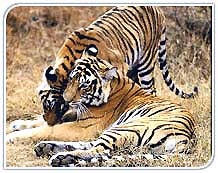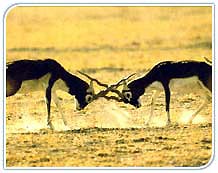Kanha Travel Guide
---------------------------------------------------------------------------------------------------------------------------------------------------------------------------------------------------------------------------------
Kanha Home » Kanha National Park » How to Reach » Air Line Ticketing
Car Coach Rentals In Kanha » Hotels & Resorts in Kanha » Map »Travellers Tools
---------------------------------------------------------------------------------------------------------------------------------------------------------------------------------------------------------------------------------
Kanha Home » Kanha National Park » How to Reach » Air Line Ticketing
Car Coach Rentals In Kanha » Hotels & Resorts in Kanha » Map »Travellers Tools
---------------------------------------------------------------------------------------------------------------------------------------------------------------------------------------------------------------------------------
 Kanha
National Park
Kanha
National ParkThe Kanha National Park, in Madhya Pradesh, forms the core of the Kanha Tiger Reserve created in 1974, under Project Tiger. Stretching over 940 sq km, the vegetation, chiefly made of sal and bamboo forests, grasslands and streams, this park is the sole habitat of the rare hardground barasingha.
The forests of the Banjar valley and Halon valley, respectively forming Kanha's western and eastern halves, had even , at the turn of the century, been famous for their deer and tiger population. By a special statute in 1955, Kanha National Park came into being. Since then, a string of stringent conservation programmes have been launched, for the overall protection of the park's fauna and flora. It is one of the most well-maintained National Parks in Asia, and a major attraction for avid wildlife buffs all over the world.
Kanha boasts of about 22 species of mammals. Some of the inhabitants of this park are the gaur, the largest of the world's cattle; the sambar, the largest Indian deer; and the chausingha, the only four-horned antelope in the world. Other frequent visitors include the Nilgai antelope, the sloth bear, the dhole, or Indian wild dog, and an occasional panther. Some 200 species of birds inhabit the park, that include the cattle egret, black ibis, hawk eagle, and the red-wattled lapwing. Shravantal is an old, earthenbound tank in the central Kanha meadows, which happens to be an important watering hole, for a large number of water fowl in winter. Bamni Dadar, known as Sunset Point, is the most beautiful section of the park, and the view of the sunset from this spot is absolutely mesmerising. Quite a few animals can be sighted around this area which include the sambar, gaur, the four-horned antelope and the barking deer.
 Blackbuck:
Blackbuck:
The barasingha is undoubtedly, the jewel of Kanha, and drastic steps have been taken to rescue it from complete extinction. The enlargement of the grasslands, through village reallocation, has been responsible for this impressive achievement. Barasinghas exist almost totally on grass, and tall grass meadows are essential for their security. At the height of winter, between December and January, falls the rutting season of these animals, and huge groups can be easily spotted in the Kanha and Sonph meadows. A small, but significant number of blackbucks also inhabit the central Kanha meadow.
But for all the astonishing diversity in its wildlife population, Kanha is best known as the habitat of the tiger. Sighting and photographing this magnificent animal from elephant back, is an unforgettable experience. It was here that the first ever scientific study of the tiger was undertaken by the great zoologist George Schaller.
Kanha Home »
Kanha National Park
» How
to Reach » Air
Line Ticketing
Car Coach Rentals In Kanha » Hotels & Resorts in Kanha » Map »Travellers Tools
Car Coach Rentals In Kanha » Hotels & Resorts in Kanha » Map »Travellers Tools